The week ahead in Parliament
- Published
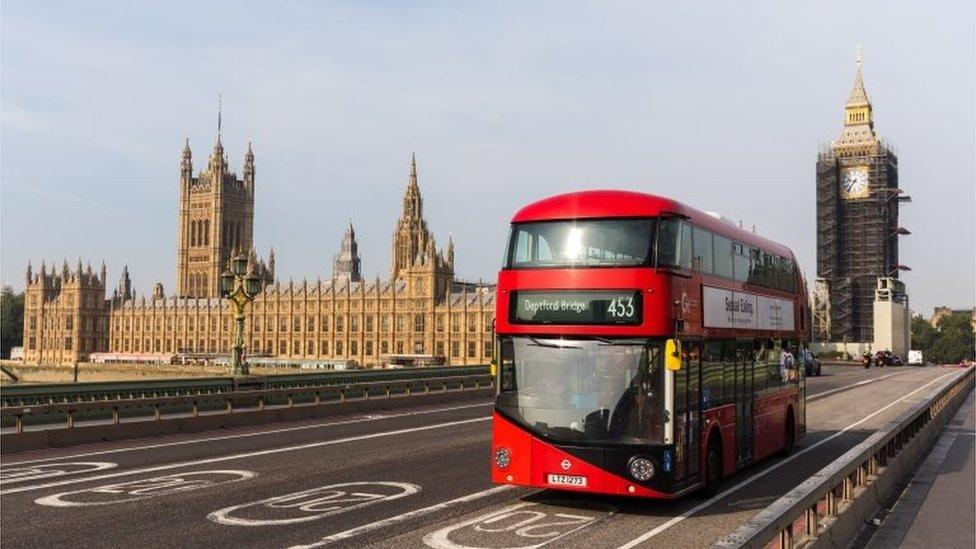
After a whole week of the Commons operating on pre-pandemic rules, there's a sense of change in the air.
It's a much more testing environment for all MPs but particularly for ministers and opposition front-benchers - and with talk of reshuffles in the air, it also provides an opportunity for those seeking higher office to strut their stuff.
But the new environment goes further than that; politics is a very social activity, and behind the scenes MPs can once again gather in huddles and plot.
MPs from the 2019 intake, whose normal parliamentary education was slowed by the pandemic, are learning the conspiratorial arts and may soon deploy their new skills.
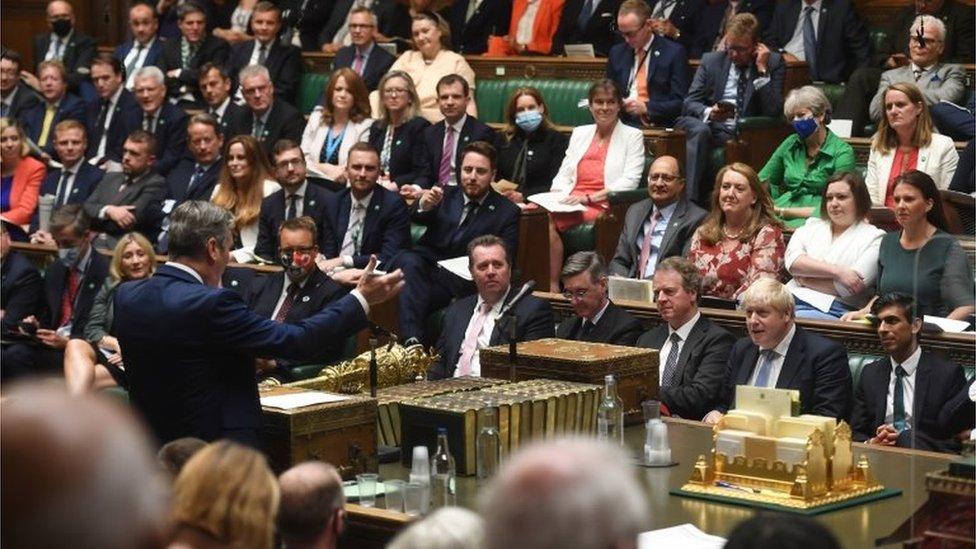
MPs are getting used to being able to huddle and plot face-to-face.
Meanwhile there's important Whitehall action going on in the background - government departments have to submit their returns for the current Spending Review (SR) no later than Monday.
Almost all (with the exception of Health and Social Care) face another tough spending squeeze, even as total spending rises.
They have been warned that they will be expected to "carefully prioritise their bids, and will need to make trade-offs to ensure that this increased spending is focused on the delivery of our key commitments".
So watch out for any hints or inklings of the SR process which might escape into the wild, at question times or committee hearings, in advance of the Chancellor's Budget announcements, which are due on 27 October.
At the posh end of Parliament, peers continue their extensive rewrite of the Environment Bill, where the government has already lost a number of significant votes, although by narrower margins than were often the case in the previous parliamentary year.
Even so, there seems to be highly effective cross-party collaboration to push changes through, partly because the bill has been so long in the making and partly because the personalities involved from Labour and Lib Dems seem to have worked well with the Greens and crossbenchers led by Lord Krebs, the former president of the British Scientific Association.
Events this week provided a powerful health warning for readers; the agenda described below can be set aside by the government with minimal notice, as when they cancelled the Labour Opposition Day debates due on Wednesday, to make room for the vote on the National Insurance increase.
Monday 13 September
The Commons week opens (14:30 BST) with an hour of work and pensions questions - after which, expect the usual quota of post-weekend ministerial statements and urgent questions.
Then there is detailed consideration of the Dissolution and Calling of Parliament Bill, which as a constitutional measure, will be debated by a Committee of the Whole House.
As an appetiser, there's an interesting parliamentary manoeuvre from Labour's Chris Bryant - attempting to widen the mandate for the debate so the House may consider amendments on issues around the prorogation, or suspension, of Parliament.
This would allow MPs to look at the issues raised by the Supreme Court's famous ruling of 2019, which quashed Boris Johnson's attempt to prorogue.
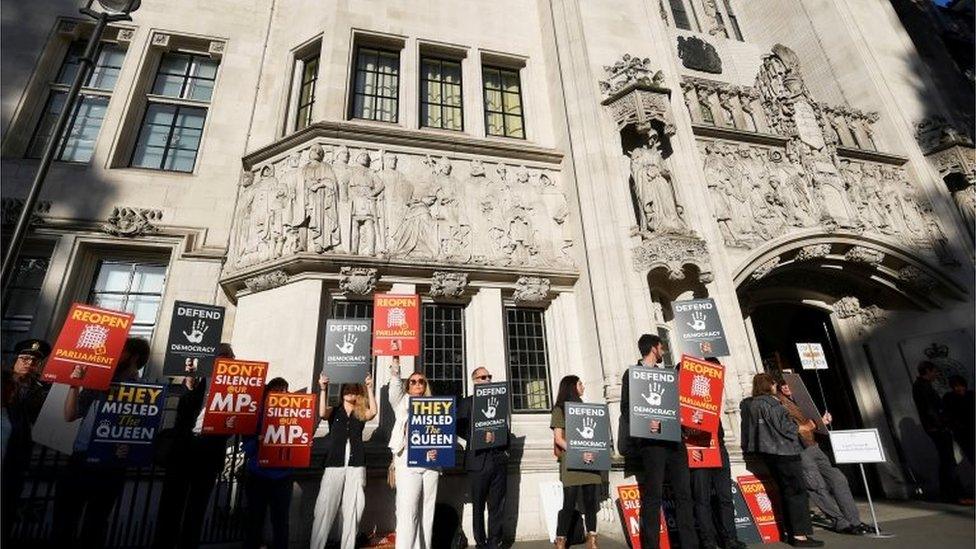
Boris Johnson's attempt to prorogue parliament in 2019 led to protests outside the Supreme Court
His proposal is admissible, but may only be moved with the Speaker's permission. This is because prorogation is not within the current scope of the Bill, but is sufficiently closely related to its subject matter for an Instruction to be admissible.
Normally this device is used only by the government but Mr Bryant has pounced on a rare conjunction of circumstances to bring Standing Order No 66 into play from the backbenches - he needs to first get the Speaker to permit him to make the proposal, then get it accepted by MPs, and only then could any amendments on prorogation be put to the House.
In Westminster Hall (16:30) Petitions Committee debates are back, starting with a debate on e-petition 586700, which calls for an independent review of childcare funding and affordability.
The petitioners argue that the UK has the second most expensive childcare system in the world with full time places costing an average, £14,000 per year, making it completely unaffordable for many families. The petition attracted 112,627 signatures.
Next (18:00) comes e-petition 563380, calling for Parliament to stop work on HS2 immediately and hold a new vote to repeal the legislation.
The petitioners argue that MPs voted on misleading environmental, financial and timetable information provided by the Department for Transport and HS2 Ltd when they approve the High Speed Rail Bills of 2016 and 2019, and point to estimated costs that have risen from £56bn to over £100bn.
The petition received 155,252 signatures.
Committee action includes Public Accounts (14:30) quizzing top Treasury civil servants about efficiency in government.
The Housing, Communities and Local Government Committee (16:00) are looking at what local councils can do to achieve Net Zero carbon emissions.
In the Lords (14:30) proceedings begin with the introduction of Baroness Casey of Blackstock, the former deputy director of Shelter who was appointed to chair the government's Rough Sleeping Taskforce. She will sit as a Crossbench, or independent peer.
Question Time ranges across screening members of the armed forces for gambling disorders, and extra support for family carers.
Then, peers move to their third day of Report Stage consideration of the Environment Bill - having inflicted several defeats on the government in the first two days,
Look out for votes on the Labour peer Baroness Jones of Whitchurch and the Crossbencher Viscount Colville's amendment extending new charges for plastic single-use items to other, non-plastic single-use items.
The idea is to attack the "single use culture" and prevent existing materials being replaced by alternatives which are just as environmentally damaging.
There may also be a vote on the Lib Dem Baronesss Bakewell of Hardington Manderville and Baroness Jones' amendment on protecting bees and pollinating insects through limiting pesticides; and further amendments on water quality and biodiversity could be pushed to a vote.
Tuesday 14 September
The Commons begins (11:30) with an hour of Justice questions.
Then the Conservative former Cabinet minister Maria Miller, a former chair of the Women and Equalities Committee, has a ten-minute rule bill aimed at blocking the use of non-disclosure agreements - NDAs - between departing employees and their employer, to conceal illegal behaviour like sexual harassment or bullying, often in return for a pay-off.
And she also intends to ask the speaker to ensure that Parliament no longer makes such agreements with its staff.
Then MPs will yomp through all stages of the Health and Social Care Levy Bill - the legislation which will underpin the National Insurance rise for the NHS and social care.
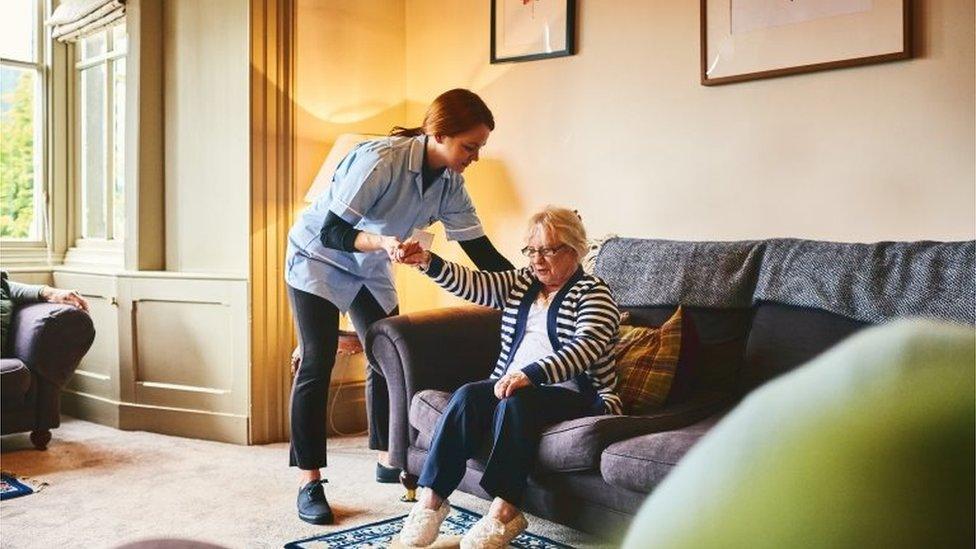
The bill sets out how the money raised will be legally ringfenced to be spent on health and social care but gives the Treasury the power to decide the split, which is likely to reinforce fears amongst MPs that the funds will be monopolised by the health service and never reach the care sector.
Despite the rush through the Commons, peers don't seem to be falling over themselves to rush this legislation through; I'm told the bill looks likely to debut in the Lords in the week beginning 18 October.
Committee action includes Health and Social Care looking at cancer services (09:30) focusing on why the UK falls behind on early cancer diagnosis.
They will look at how GP procedures and diagnostic routes could be changed to boost early diagnosis.
Public Administration and Constitutional Affairs (09:30) concludes its scrutiny of the Elections Bill by quizzing the constitution and devolution minister, Chloe Smith.
And Justice (14:30) continues its inquiry into women in prison with a session focused on health and education, with witnesses from the Prisoner Education Trust, and the National Women's Prisons Health and Social Care Review.
In Westminster Hall, Labour's Bell Ribiero-Addy leads a debate on Black Maternal Mental Health Week (09:30) and the Conservative Alex Stafford (16:00) looks at the role of shipping emissions in decarbonising the UK.
In the Lords (14:30) question time covers whether mountain guides should need visas or work permits to work in the EU, and funding for supported housing.
Peers polish off the Leasehold Reform (Ground Rent) Bill with what is expected to be a brief Third Reading
Then comes the Second Reading of the Police, Crime, Sentencing and Courts Bill - another measure likely to face heavy amendment by Their Lordships.
Expect the usual alliance of the opposition parties and Crossbench legal eagles to signal the changes they plan to make.
Issues like policing of protests, unauthorised encampments, custodial and community sentences, secure children's homes and rehabilitation of offenders look bound to attract attention.
Wednesday 15 September
MPs begin (11:30) with half an hour of Wales questions, before moving on, at noon, to Prime Minister's Question Time.
The day's Ten Minute Rule Bill, from Labour's Olivia Blake aims to create a new offence of verbal and physical abuse of public-facing workers.
The main debates will be on Labour Opposition Day motions. Their motions on an inquiry into Afghanistan and against the ending of the £20 Universal Credit uplift were cancelled in the previous week, to make way for the initial vote on the National Insurance increase.
Labour could return to those subjects, or move to a different target.
Westminster Hall debates include South Yorkshire Metro Mayor and Labour MP Dan Jarvis on the government's levelling-up agenda (16:30).

The government may face a defeat in the Lords over protecting ancient woodland
On the Committee Corridor the Northern Ireland Committee (09:30) looks at hate crime and the impact of immigration policy on minority ethnic and migrant people with witnesses from the migrant, refugee and Jewish communities.
Transport (09.30) quizzes minister, Rachel Maclean on the government's recently published transport decarbonisation plan, and Women and Equalities (14:30) question a panel of senior Commons officials on creating a gender-sensitive Parliament - they include the Clerk of the Commons Dr John Benger, and Marianne Cwynarski, the Director General at House of Commons.
Treasury (14:30) hears from expert witnesses on creating an equal recovery from the Pandemic.
Meanwhile, the Lord Chancellor, Robert Buckland, is the star witness at the Lords Justice and Home Affairs Committee (10:30)
In the Lords (15:00) question time covers resuming visits at NHS hospitals and reforming Council Tax. Then, peers move on to Day four of the Report Stage of the Environment Bill.
Look out for more votes, and perhaps move government defeats on amendments on the protection of ancient woodland, where Baroness Young of Old Scone, the Conservative ex whip and Lord Randall want a new duty to implement an enhanced protection standard for the more than 800 ancient woodlands in England currently threatened by development.
There are also amendments on protection of natural habitats and the global footprint target timetable.
Thursday 16 September
The Commons opens (09:30) with forty minutes of Digital, Culture, Media and Sport questions.
That's followed by the return from maternity leave of the Attorney-General, Suella Fernandes for her mini-question time, and then the weekly announcement of the forthcoming Commons agenda by the Leader of the House.
The main business is a brace of Backbench Business Committee debates, first on the role and response of the devolved administrations to the COP 26 climate change conference, and then on reforms to the criminal justice system to respond better to families bereaved by major disasters.
This looks like the continuation of the parliamentary campaign for a system to provide legal assistance to families confronted with the daunting and expensive complexities of the public inquiry system.
Committee business includes Northern Ireland Secretary, Brandon Lewis, before Northern Ireland Affairs (09:30) to talk about the government's latest proposals to address the legacy of the Troubles
Public Administration and Constitutional Affairs (09:30) has a pre-appointment hearing for the government's preferred candidate for the Commissioner for Public Appointments, William Shawcross.
Public Accounts (10:00) takes evidence on the National Law Enforcement Data Programme - emerging as a classic example of a public procurement fiasco. Witnesses include the Permanent Secretary at the Home Office, Matthew Rycroft
In the Lords (11:00) ministers face questions on preserving England's historic counties and ensuring leaseholders do not bear the costs of repairing building and fire safety defects for which they are not responsible.

MPs will debate the role of behaviour change in achieving net-zero emissions
And that's followed by the regular half-hour question time for the government's Brexit Supremo, Lord Frost, the Minister of State at the Cabinet Office
Then there are backbench debates on committee reports - first, on the role of behaviour change in helping the UK to reach net zero carbon emissions by 2050, as set out in the report by the Climate Change Committee "Reducing UK emissions: 2020 Progress Report to Parliament, published on 26 June 2020"; and of the case for a public engagement strategy.
The second debate will be on improving government through the introduction of training in core leadership skills for ministers and senior civil servants.
There will also be a short debate on the intergenerational impact of the proposed changes to social care funding
Neither House sits on Friday 17 September - and the House of Lords is off for its Conference Recess, returning on October 11.
The Commons continues for a further week, before rising on 23 Septemer, to return on 18 October.
Related topics
- Published20 November 2022
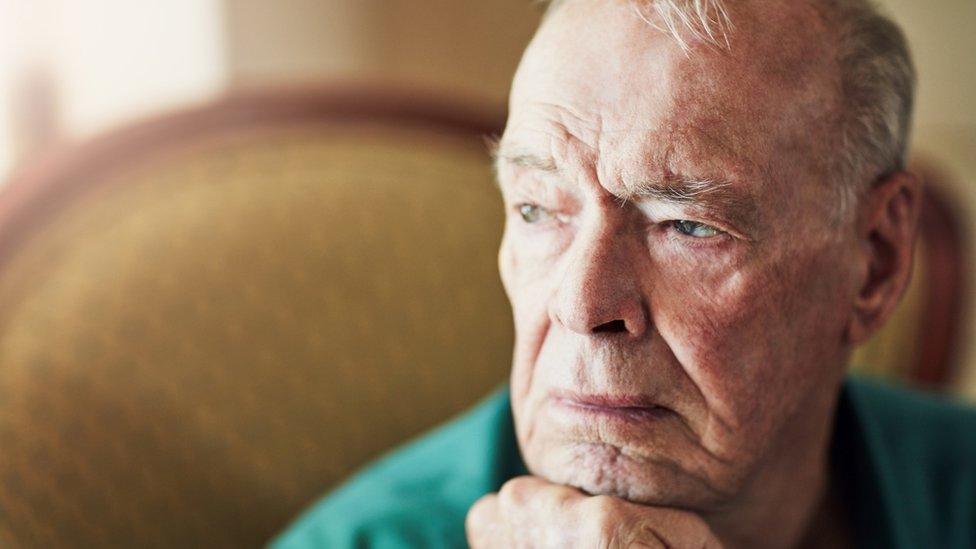
- Published12 May 2021
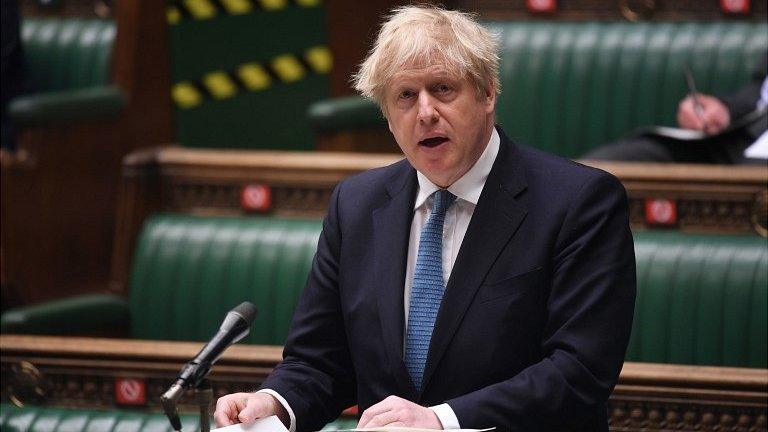
- Published20 August 2021

